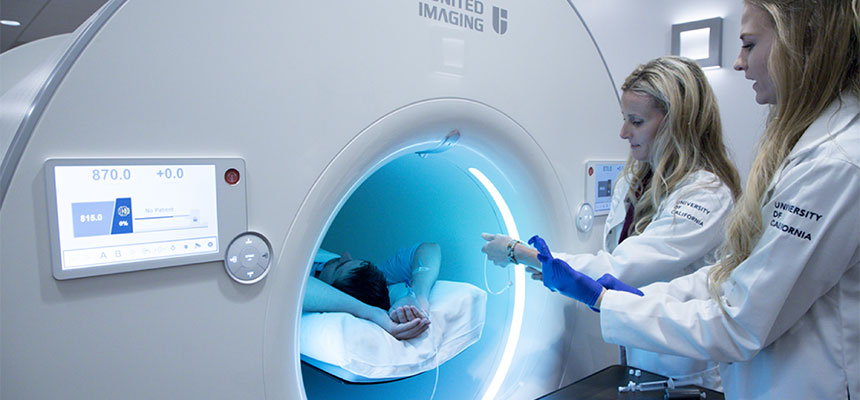
Comparative Oncology
Our first-in-the-nation Comparative Oncology program trains the next generation of veterinarian- and physician-scientists. Drawing on UC Davis’s strengths as a research institution, pre- and post-doctoral scholars have access to faculty mentors from the School of Veterinary Medicine and School of Medicine as well as the Colleges of Agricultural Science, Environmental Science, and Engineering. Dual DVM-PhD students work to integrate the study of companion animals, which have naturally-occurring cancers, with human cancer biology and therapy (comparative oncology to advance the health of people and animals.
Bridges to Doctorate
In partnership with California State University, Fresno (Fresno State), the Bridges program assists select underrepresented graduate students interested in a research career through individually designed academics and research trainings. Students first complete a master’s program in biomedical sciences at Fresno State and then a PhD program at UC Davis Additionally, scholars participate in a summer research experience laying the essential groundwork required to face the rigors of graduate school education in a highly competitive environment.
Veterinary Scientist Training Program
This program prepares students with dual DVM-PhD degrees to become compassionate and exceptional veterinarian-scientists involved in basic and translational research for the advancement of health in people, animals, and the environment. Participants in the program receive clinical and biomedical research training at UC Davis’s top ranked School of Veterinary Medicine and the Colleges of Agriculture and Environmental Sciences, Biological Sciences, Biomedical Engineering, and Human Medicine.
Advanced Training in Environmental Health Sciences
Through interdisciplinary research and coursework, this program trains environmental health scientists to address pressing issues in the field. Students receive faculty mentorship from researchers in a variety of departments, including toxicology, molecular biology, cancer, genotoxicity, metabolic disorders, epigenetics, and more. This program utilizes the resources and research of multiple UC Davis centers to promote and synergize approaches to disease prevention and public health. Trainees are well prepared for successful careers in academia, government, or the private sector.
Predoctoral Training in Pharmacological Sciences
Future biomedical researchers broaden their research perspectives and skills in this program. Leveraging the multidisciplinary biomedical research environment at UC Davis with its highly successful program in drug development, trainees explore the concepts of drug discovery and development from target identification into the clinic. Trainees receive focused and student-tailored training in pharmacology principles and partner with other pharmacology students on interdisciplinary experiences. The program exposes students to novel drugs and possible therapeutics for cardiovascular, neurological, immunological diseases and cancer.
Students Training in Advanced Research
The STAR Program identifies, nurtures, and supports veterinary students through work with faculty mentors in all aspects of veterinary and biomedical research. This program teaches trainees five fundamental research objectives: 1) how to gain knowledge and understanding of one’s field of science; 2) formulating a scientifically sound and testable hypothesis; 3) identifying specific objectives, conduct controlled methodical experiments, and develop technical expertise; 4) analyzing results, deriving conclusions, proposing additional experiments, and anticipating new directions; and 5) conveying research findings succinctly and convincingly to others. The program supports students with a variety of interests ranging from biomedical engineering to vector borne diseases, to epidemiology.
Training in Molecular and Cellular Biology
In this program, trainees gain a breadth of knowledge, research training, and career skills, that prepares them for a successful career in the national biomedical workforce. The most qualified PhD students in molecular and cellular biology work with top faculty 16 academic departments with a variety of research interests including genetics, biochemistry, structural biology, physiology, and neuroscience. The program integrates Graduate Group coursework, PhD thesis research in individual laboratories, and professional development experiences with a set of coherent training activities. By combining discipline-specific training in faculty members’ laboratories with interdisciplinary scientific training, trainees are well-prepared to enter the biomedical workforce with a broad perspective and skill set.

